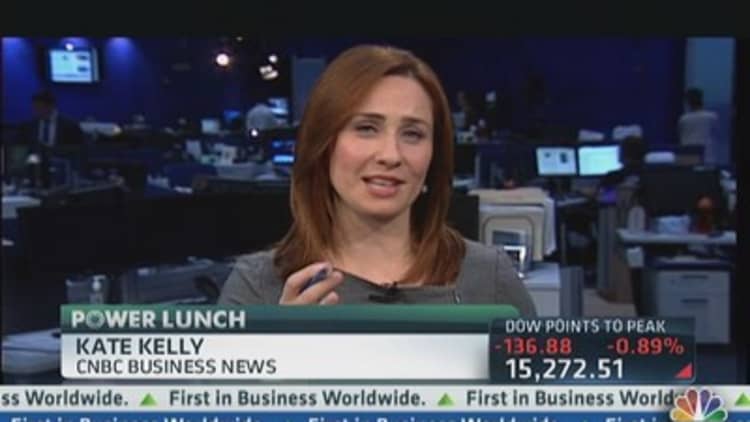The Securities and Exchange Commission Wednesday lifted the ban on advertising by issuers seeking private investment. Opponents of the rule mandated by the JOBS Act dubbed it the hedge fund ad ban, as a way of evoking a risky, black box investment culture that takes advantage of unsuspecting investors.
While much of the attention has been focused on how Wednesday's SEC action may help hedge funds, a constituency will clearly be hurt: entrepreneurs.
The reason lifting the ad ban was included in the JOBS Act in the first place was to help entrepreneurs and small businesses find new ways to finance their ventures. The ban was cutting entrepreneurs out of using crowdfunding and other non-traditional platforms to raise seed money. By ending it, Congress was trying to give the future Mark Zuckerbergs of the world a boost.
"Today, it is illegal for you to run an ad or put on your website that you're looking for funding in the hope that sophisticated investors would come to you to offer an investment," said Brian Lane, a partner at Gibson Dunn & Crutcher and a former director of the SEC's corporation finance division. "Today investor portals on websites are typically password protected."
While the SEC voted to lift the ban, it did not change the rules about these investments being limited to accredited investors. Those are people who either have $1 million in investable assets, not including their homes, or made $200,00 for each of the last two years, or $300,000 with a spouse. Hedge funds and others who are raising money in private transactions are only supposed to sell shares to accredited investors. That's still true, only now they'll be able to solicit them openly.
(Read More: )

Where today's new rule gets complicated is that anyone seeking these sorts of private investments will now have more responsibility in vetting the would-be investors. They'll be required to get a tax return or an avowal from a CPA, lawyer or broker dealer that has verified the investor's credentials. Not a problem for a hedge fund with a compliance department.
But think about Facebook co-founder Zuckerberg, sitting in his dorm room at Harvard. Would you have been comfortable giving him your tax return? Zuckerberg did what most people do in his situation—got money from his dad. Ironically, family members are not exempted from the accreditation rules, said Lane. Fortunately, the SEC is not in the business of stopping mom or dad from investing in their kids' careers.
(Read More: The Best Hedge Fund Ad Slogans On Twitter)
The SEC also proposed rules that would require issuers to supply more information through Form D. Currently issuers file a form D after the fundraising is done. The new rule proposes filing a preliminary form D before the issuer runs an ad, as well as an update after the investment is wrapped up. This would both give investors more information and allow the SEC to collect data to see how lifting the ban was impacting the market. Two commissioners, Troy Paredes and Dan Gallagher, opposed even putting the new rules out for a 60-day comment period, saying the costs of supplying the information the SEC is asking companies to provide would be too expensive for small businesses. They were outvoted.
It took the SEC about a year longer to lift the ban than the law had mandated. It will be interesting to see if the proposed rule aimed at collecting data to study the market will take that long.
—By CNBC's Margaret Popper and Kate Kelly; Follow them on Twitter: @popperm and @KateKellyCNBC.


